DESONIDE CREAM/GEL/OINTMENT - TOPICAL
PHONETIC PRONUNCIATION: (DES-oh-nide)
COMMON BRAND NAME(S): Desonate, Desowen, Tridesilon
GENERIC NAME(S): desonide
Uses
USES: This medication is used to treat a variety of skin conditions (e.g., eczema, dermatitis, allergies, rash). Desonide reduces the swelling, itching and redness that can occur in these types of conditions. Desonide is a mild corticosteroid.
How to use DESONIDE CREAM/GEL/OINTMENT - TOPICAL
HOW TO USE: Use this medication only on the skin. Wash your hands. Before applying the medication, clean and dry the affected area. Apply a thin film of the medication to the affected area and gently rub in, usually 2-3 times daily, or as directed by your doctor. If using the gel, apply the gel usually only 2 times daily. Do not bandage, wrap, or cover the area unless you are instructed to do so by your doctor. If used in the diaper area on an infant, do not use tight-fitting diapers or plastic pants. After applying the medication, wash and dry your hands, unless you are using this medication to treat the hands. When applying this medication near the eyes, avoid getting it in the eyes because this may worsen or cause glaucoma, or cause irritation. Also, avoid getting this medication in the nose or mouth. If you get this medication in your eyes, nose, or mouth, rinse right away with plenty of water. Use this medication only for the condition prescribed. Tell your doctor if your condition persists or worsens after 2 weeks.
Side Effects
Precautions
Interactions
Overdose
Images
Reviews
Faq for DESONIDE CREAM/GEL/OINTMENT - TOPICAL
Desonide cream/gel/ointment is a topical corticosteroid medication used to treat various skin conditions such as eczema, dermatitis, allergies, and rash.
Desonide works by reducing inflammation and suppressing the immune response in the skin, which helps to alleviate itching, redness, and swelling associated with skin conditions.
Clean and dry the affected area before applying a thin layer of desonide cream/gel/ointment. Gently rub it into the skin until fully absorbed. Use it as directed by your doctor or follow the instructions on the package.
The frequency of use may vary depending on the severity of your condition. Usually, it is applied two to three times daily. Follow your doctor's instructions or read the package insert for specific guidelines.
Common side effects include mild skin irritation, burning, itching, or dryness at the application site. However, if you experience severe skin reactions or any signs of an allergic reaction like rash, swelling, or difficulty breathing, seek immediate medical attention.
Do not use desonide cream/gel/ointment for a longer duration than prescribed by your doctor. Prolonged use of topical corticosteroids can lead to thinning of the skin, discoloration, or other unwanted side effects.
Desonide cream/gel/ointment can be used on the face but should be done with caution as the skin on the face is typically more sensitive. Avoid contact with the eyes or mouth and do not use it for an extended period on the face without consulting a healthcare professional.
Desonide cream/gel/ointment is generally safe for use in children above three months old. However, consult a pediatrician before using it on infants or younger children.
Yes, you can apply makeup or sunscreen over desonide cream/gel/ointment once it has been fully absorbed into the skin. Allow a few minutes for the medication to dry before applying other products.
Disclaimer
IMPORTANT: HOW TO USE THIS INFORMATION: This is a summary and does NOT have all possible information about this product. This information does not assure that this product is safe, effective, or appropriate for you. This information is not individual medical advice and does not substitute for the advice of your health care professional. Always ask your health care professional for complete information about this product and your specific health needs.
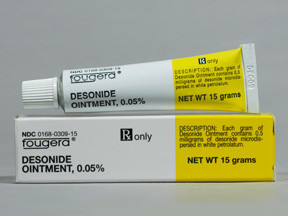
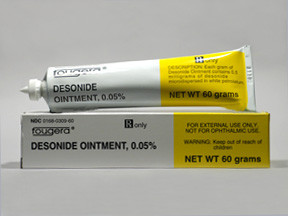
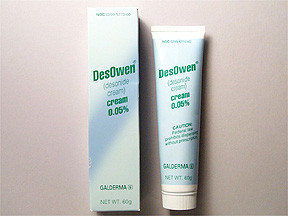
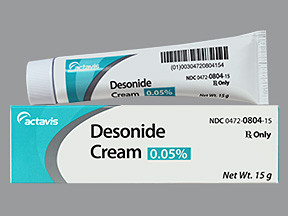
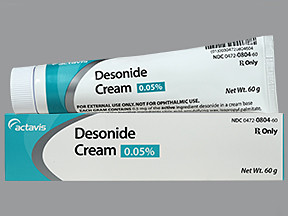
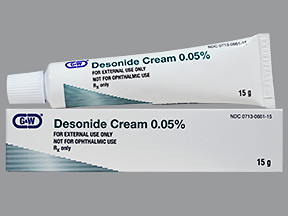
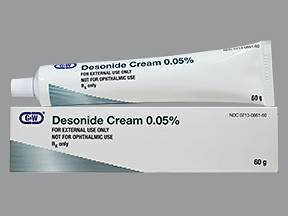

No Reviews Yet